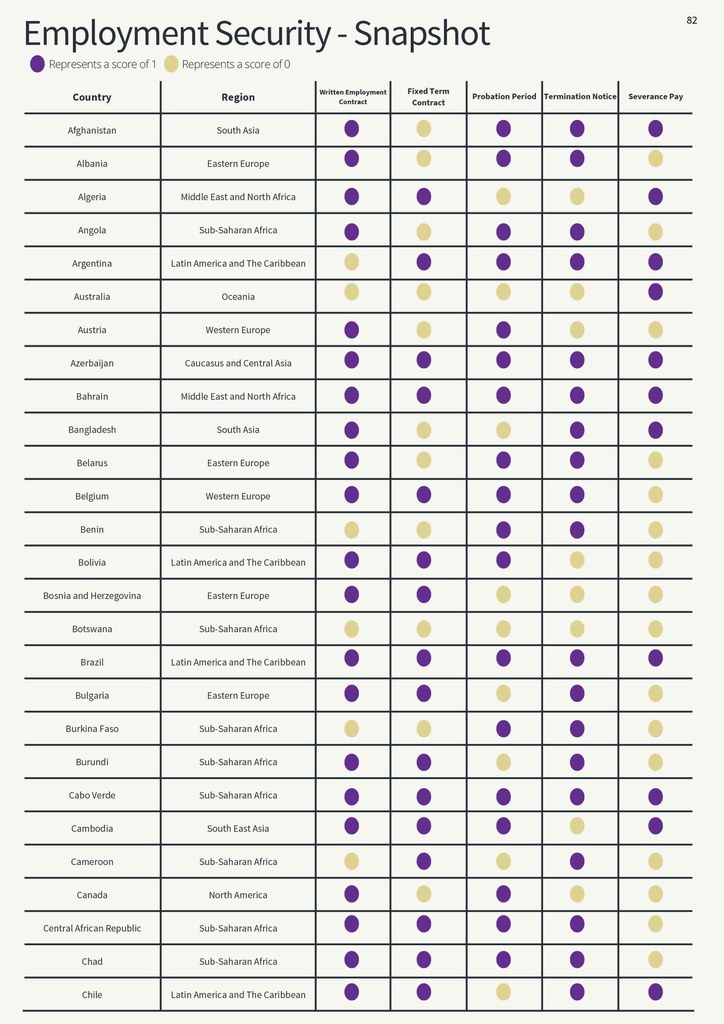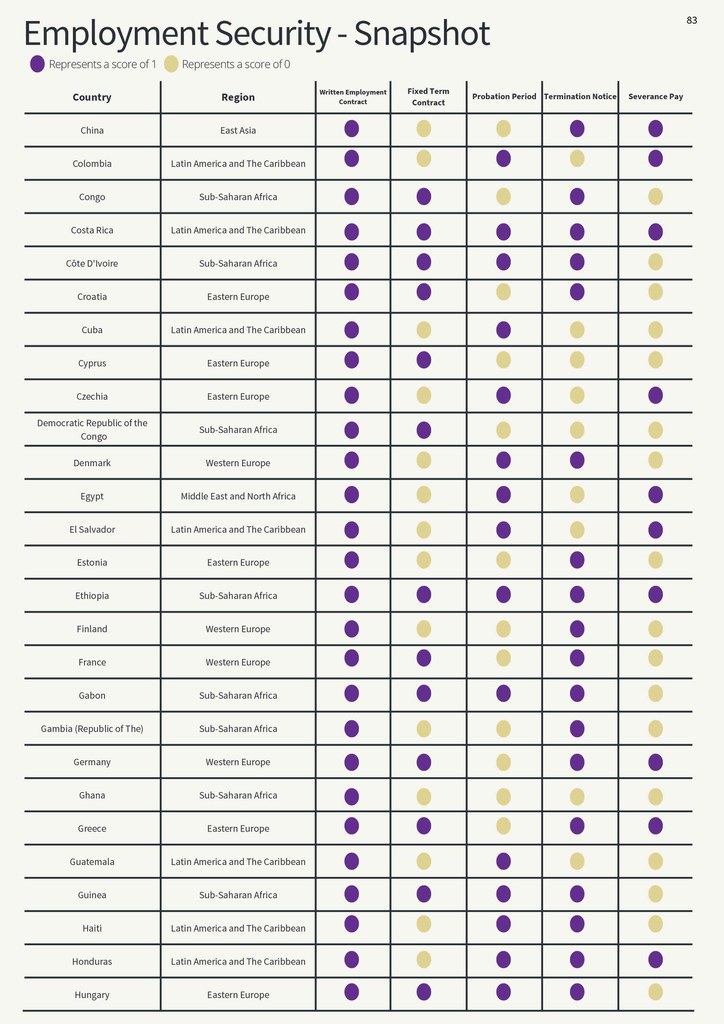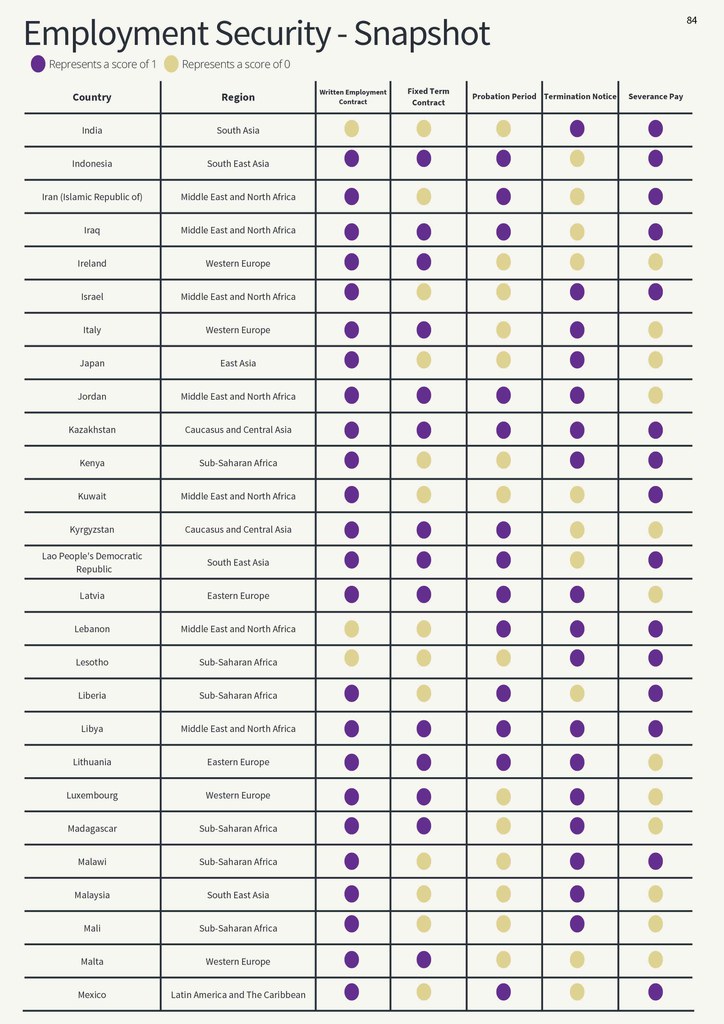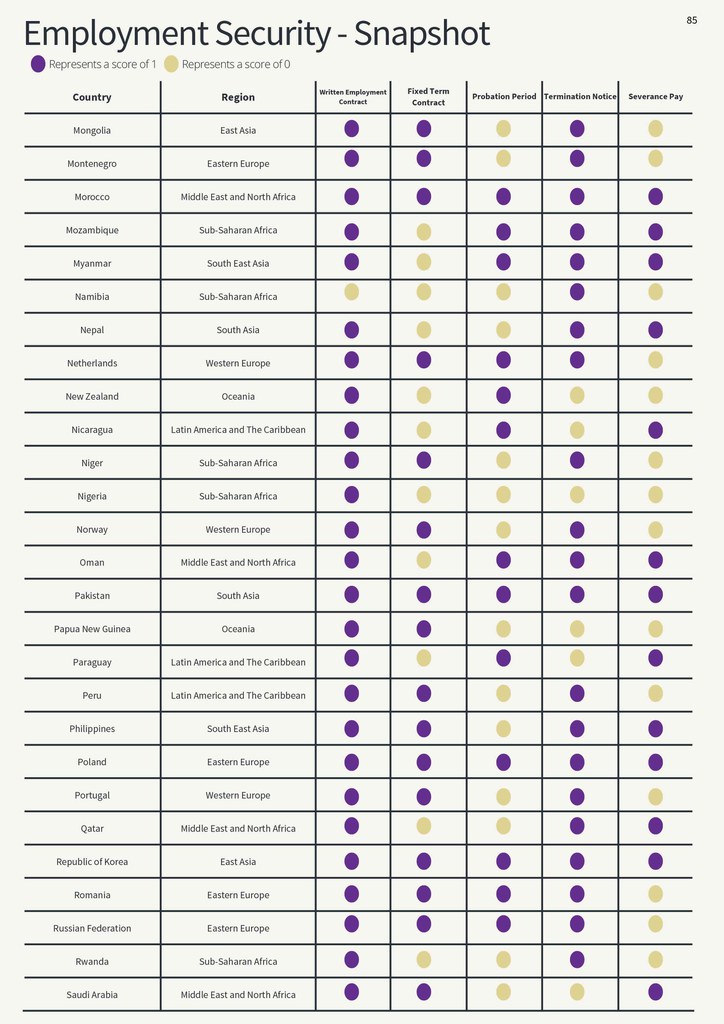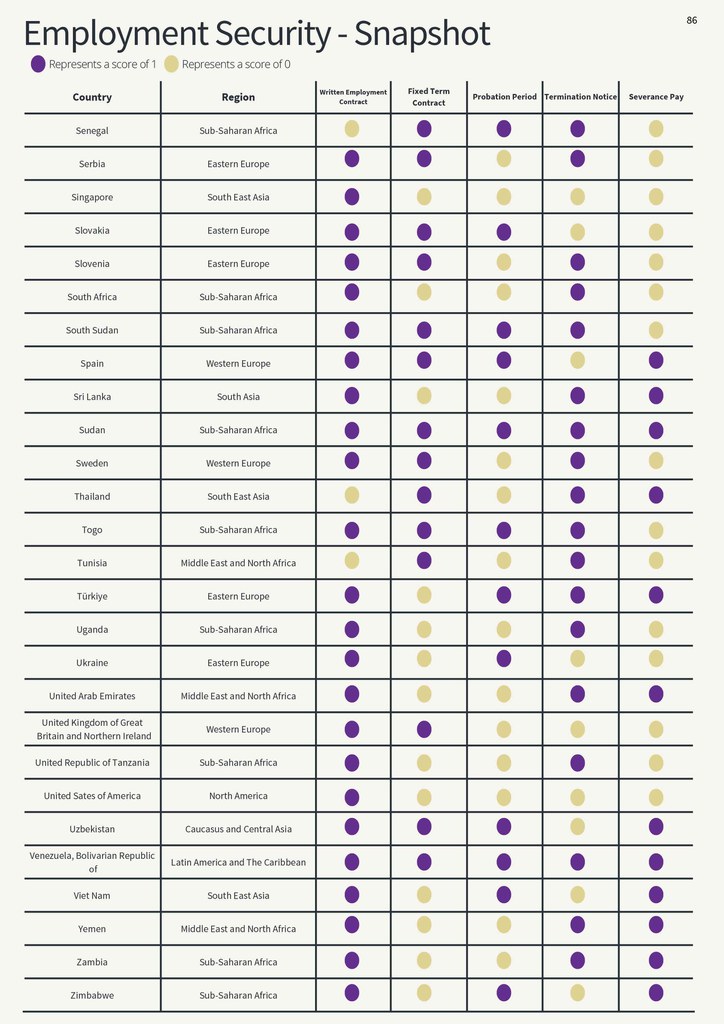Employment Security
The Employment Security indicator measures whether labour legislation ensures that workers' jobs are characterized by a degree of permanence and reliability. The indicator considers various aspects of employment security and stability like a written employment contract, indefinite vs fixed-term contracts for tasks of a permanent nature, a probation period, a notice period before termination of contract and severance pay.
3.1 Written Employment Contract
Does the law require written employment contract or particulars?
International Regulatory Standard
Under Articles 7 and 8 of the Domestic Workers Convention, 2011 (No. 189), measures are to be taken to ensure that domestic workers are informed of their terms and conditions of employment in an appropriate, verifiable, and easily understandable manner and preferably, where possible, through written contracts (enforceable in the country where work is to be done) under national laws, regulations or collective agreements, and with written particulars. Similar provisions are found in the Maritime Labour Convention 2006.
Moreover, Part II (5) of the Private Employment Agencies Recommendation, 1997 (No. 188) suggest that workers employed by private employment agencies should, where appropriate, have a written contract of employment specifying their terms and conditions of employment. As a minimum requirement, these workers should be informed of their conditions of employment before the effective beginning of their assignment.*
Methodology
Whether employers are required to provide written employment contracts to workers:
1: The labour legislation requires employers to provide written employment contracts or at least written employment particulars to workers on commencement of employment.
0: No requirement on the employer’s part to provide any such written document.
Around 9% of the 135 countries do not require employers to provide written employment contracts or written employment particulars to workers.
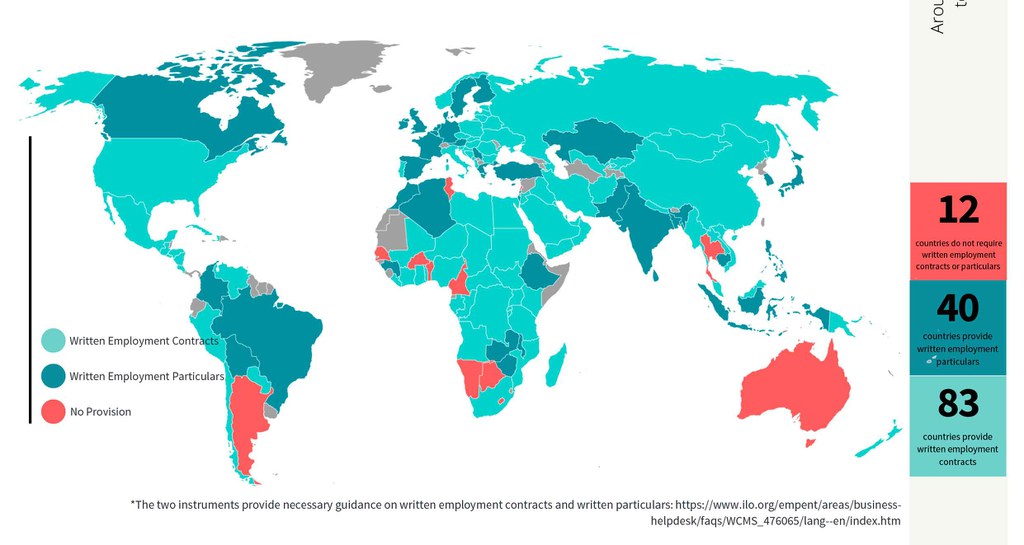
3.2 Fixed Term Contracts
Does the law restrict the hiring of fixed-term contract workers?
International Regulatory Standard
Article 2(3) of the Termination of Employment Convention 1982 (No. 158) states that adequate safeguarding measures should be provided against the use of fixed-term contracts of employment for a specified period of time with the aim of avoiding the protection resulting from this Convention.
Also, Article 3(2) of the Termination of Employment Recommendation, 1982 (No. 166) allows for a fixed or definite term contract, considering the nature of work or circumstances under which the work is carried out or the interests of the worker. The fixed-term contracts are considered indefinite term contracts if they are renewed once or more than once, except in the above cases.
Methodology
Whether labour legislation restricts the hiring of fixed-term contract workers:
1: The maximum length of fixed contracts, including renewals, does not exceed five years.
0: The labour legislation does not specify the maximum length of fixed-term contracts or allow the maximum length of Fixed-Term Contracts (FTCs), including renewals, to exceed five years.
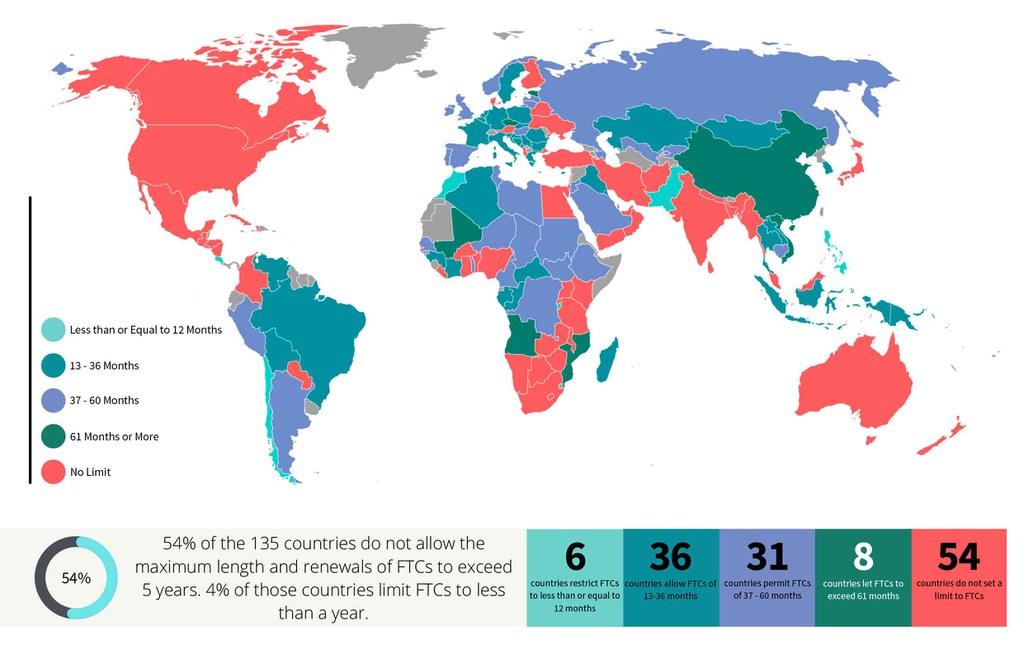
3.3 Probation Period
Does the law limit the length of probation period, including renewals, to three months?
International Regulatory Standard
This component is grounded in Article 2 (b) of the Termination of Employment Convention 1982 (No. 158). The Convention states that a Member may exclude workers serving a period of probation or a qualifying period of employment, determined in advance and of reasonable duration, from all or some of the provisions of this Convention. In view of this, a probationary period of three months was set as a standard.
Methodology
Whether labour legislation limits the length of the probation period to three months:
1: The labour legislation limits the maximum length of the probation period, including renewals, to three months.
0: The labour legislation does not refer to a probation/trial period or allow it to exceed three months.
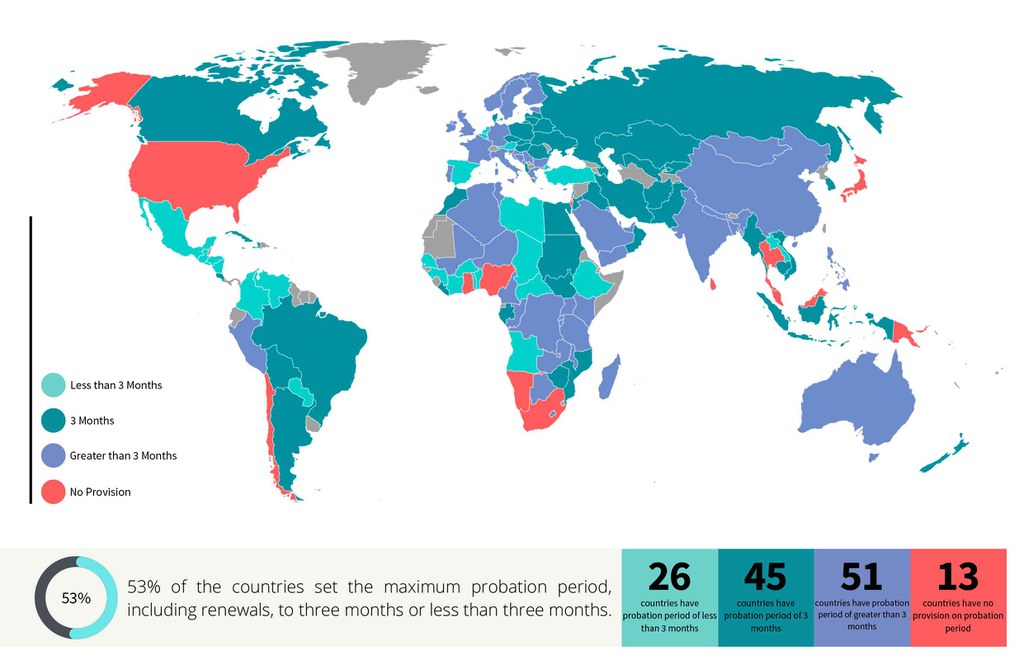
3.4 Termination Notice Period
Does the law require a 30 day notice period before contract termination?
International Regulatory Standard
Article 11 of ILO Convention 158 states that a worker whose employment is to be terminated shall be entitled to a reasonable period of notice or compensation in lieu thereof unless the worker is guilty of serious misconduct - misconduct of such a nature that it would be unreasonable to require the employer to continue the employment during the notice period.*
Methodology
Whether there is a 30-day notice before contract termination:
1: A score of 1 is assigned if either of these scenarios is present.
a) Both the employer and employee can terminate an indefinite term contract after serving a 30-day written notice or paying in lieu of notice, except in cases of gross misconduct; or
b) where a termination notice required from employees is 30 days, but it is still less than the notice period required of employers; or
c) where the notice period required
0: Both the employer and employee are required to serve a contract termination notice of less than or more than 30 days.
13% of the 135 countries have different termination notice periods for the employer and employee. Argentina and Cuba are the only Latin American countries requiring different notice periods
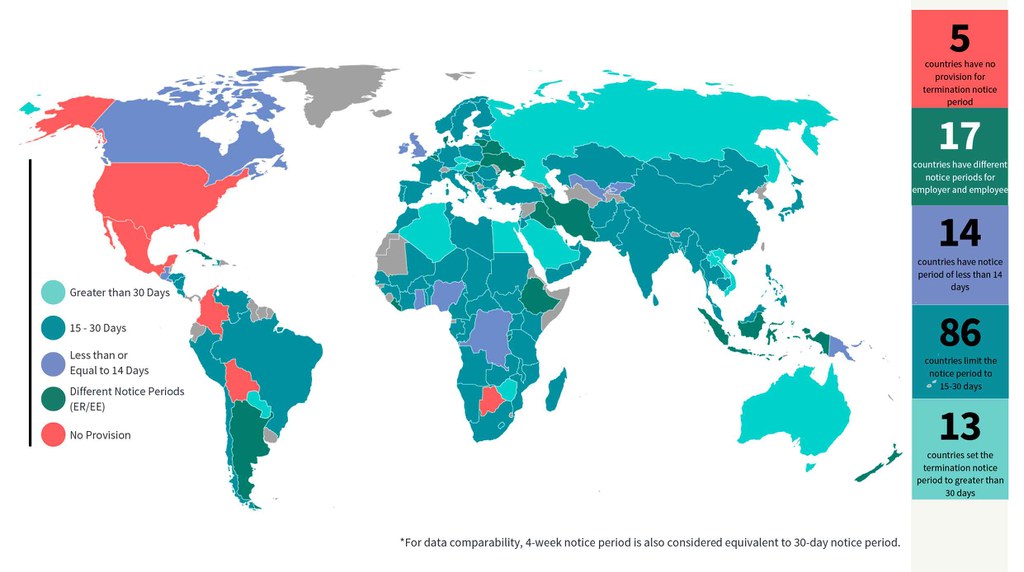
3.5 Severance Pay
Does the law require severance pay at the rate of at least two weeks of wages for every year of service?
International Regulatory Standard
Article 12 of the Termination of Employment Convention 1982 (No. 158) states that a worker whose employment has been terminated shall be entitled, in accordance with national law and practice, to a severance allowance or other separation benefits, the amount of which shall be based, among other things, on length of service and the level of wages. It is to be paid directly by the employer or by a fund constituted by employers’ contributions, unemployment insurance benefits or assistance or other forms of social security, or a combination of such allowance and benefits. Workers who do not fulfil the qualifying conditions for unemployment insurance or assistance or those workers who are terminated for serious misconduct need not be paid any severance allowance or separation benefits.
Methodology
Whether there is severance pay on contract termination:
1: Labour legislation requires employers to provide severance pay (gratuity or end of service allowance) at the rate of two weeks’ wages for each year of service* on contract termination in the event of individual dismissal or economic dismissals (redundancy) or on expiry of a fixed-term contract, except in cases of gross misconduct.
0: Severance pay is not required under the law or is provided at a rate lower than two weeks’ wages for each year of service or if the rate is not specified under the law.
24% of the 135 countries do not have any legal provision regarding severance pay.
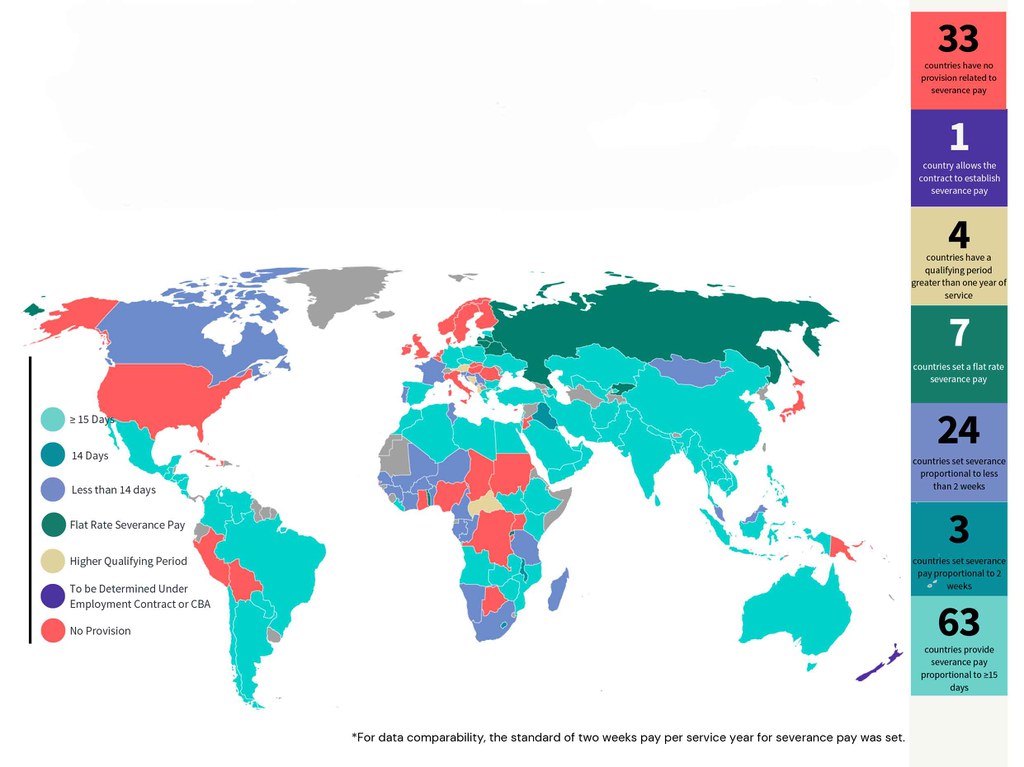
Employment Security - Snapshot
